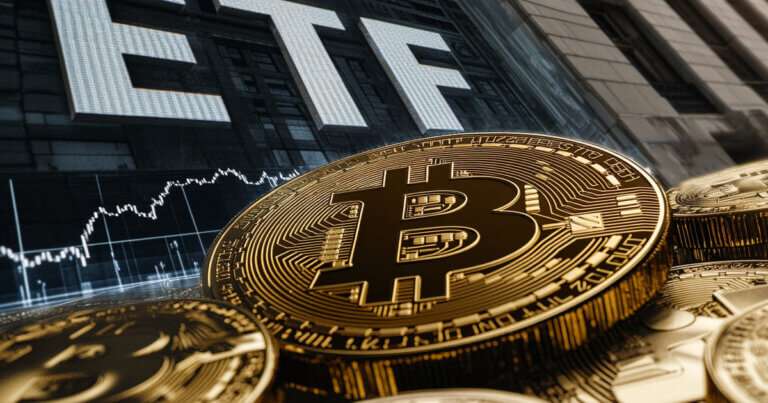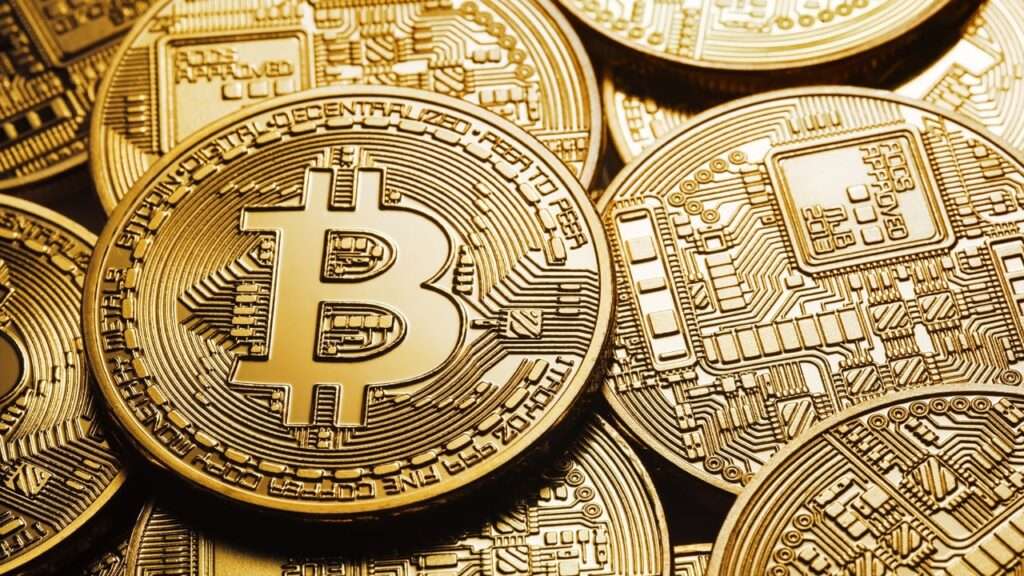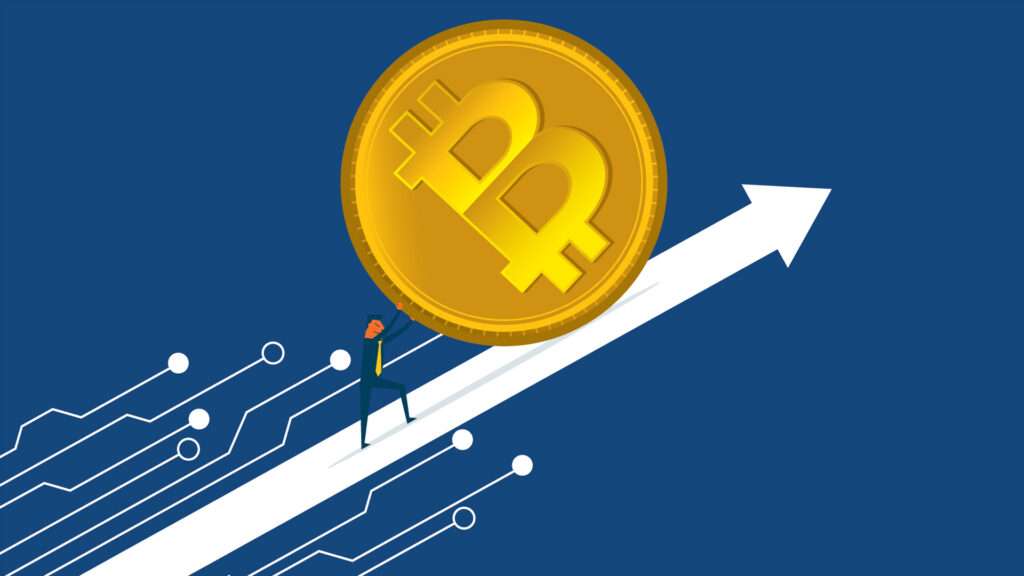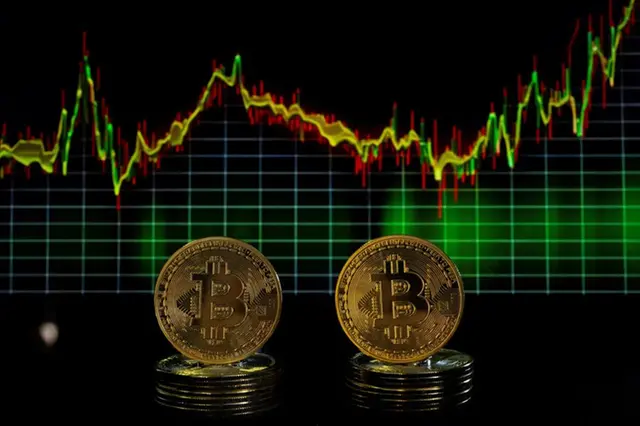Table of Contents
ToggleIntroduction
The world of finance is seeing a seismic change, a quiet revolution that challenges the great foundation of traditional economic ideas. For decades, the national reserves, depending on the financial stability of a nation, have been dominated by gold and fiat currencies like the US dollar have been established.
These assets are considered safe havens, have served as boys against economic disturbance, and have made international trade convenient. However, a new and disruptive force has emerged, which attracts the attention of governments and financial institutions: bitcoin. This digital currency, originating from the depth of the Internet, has unique characteristics for the revaluation of traditional reserve strategies.
With its decentralized nature, scatter, and border transaction capabilities, bitcoin provides a compelling option for installed orders. Unlike gold, which is physically constrained and subject to storage and transport challenges, or fiat currencies, which are unsafe for inflation and geo-political manipulation, bitcoin operates outside the control of any single unit. Its fixed supply, shadowed in 21 million coins, reflects the lack of precious metals, reflecting it as a possible defense against inflation pressure.
The attraction of Bitcoin as a strategic property is undisputed. The nation is struggling with economic uncertainties and demands to claim its financial sovereignty, rapidly discovering its ability. The bold adoption of Al Salvador by nations such as Bhutan, as a legal tender for the quiet accumulation of Bitcoin, is going through a deep change. The question is whether Bitcoin now has a place in the global financial system, and how important this place will be.
This article will detect the growing trend of countries involving bitcoin in their reserves, examining the motivations, challenges, and potential implications of this paradigm change. We will compare to gold, compared to the functions of major nations, and the potential futures of the bitcoin-supported financial system.
The Shift from Traditional Reserves to Bitcoin
Nations’ reserves are the rock of economic stability and act as buffers against unpredictable shocks and smooth functioning of international trade. For centuries, reserves have consisted of gold and foreign currencies, especially the U.S. dollar, other than very liquid assets. The selection process for these reserves stems from the perception of safety, liquidity, and global market acceptance. However, lately, the conventional reserve paradigm has found itself under increasing strain and limitation even as developments start to catch up with this paradigm application.
Despite its reputation as a reliable store of value, many logistic complexities arise from gold. Its physical nature makes it cumbersome to store, transport, and transact large volumes of gold in international trade. Reliance on foreign currency, and especially on the U.S. dollar, puts nations at risk of geopolitical turmoil and inflation. The situation with the dollar makes it quite a nuisance: while it enables free trade, it also gives quite a bit of leverage to the country that issues it, putting other nations in a tough spot when it comes to non-cooperative policy shifts and sanctions.
Within this scenario, Bitcoin, therefore, disrupts the way traditional reserve management thinking would have it. Scarcity and finite supply make Bitcoin a compact analogy for gold in the sense of being a non-promotional inflation hedge. That is, with its limited availability, Bitcoin would not permit the dilution of value in the long run, like traditional fiat currencies, upon implementation of inflationary policies.
The political currencies are raising their stakes in the transition to a Bitcoin reserve and are finding it difficult, not least due to the cryptocurrency’s infamous volatility. With substantial price fluctuations, it really presents an added burden to the nations thinking of adopting it. Further weakening the potential for achieving standardization concerning clear guidelines and standards is the absence of an overarching regulatory framework accepted and applied globally.
Also, the possibility of hacking or theft of the Bitcoins and the technical difficulties related to safely storing them have cast a long shadow. While helpful, the decentralized nature of Bitcoin means that rigorous security measures must be employed to guard against attackers. Given that Bitcoin is still in its infancy, it stands to face obstacles on account of integration into mainstream adoption and existing financial systems.
Yet the attraction of Bitcoin as a strategic reserve asset remains. Its supposed ability to hedge against inflation, pocket financial rights, and promote easy foreign transactions becomes a passionate discourse. With ongoing changes to the world’s economy, governments have an increasing item on the agenda of reserving Bitcoin: signaling a possible shift in the paradigm through which national wealth is viewed and managed. Such a conceivably Bitcoin-composed reserve stimulus will be a tough journey; however, the lure of rewards looks too good to overlook and may mean a re-evaluation of conventional financial order.

Countries Leading the Bitcoin Reserve Movement
Bringing Bitcoin into the fold of a country’s reserves is a pattern that is beginning to take place in most countries, but this is no homogeneous phenomenon. For some countries such as El Salvador, it becomes once more the two-folded pragmatism about diversification. With a rapidly evolving scenery in the global Bitcoin adoption landscape nations that boldly advocate adoption to others taking on the practical guise of slowly going into it.
El Salvador: The Bitcoin trailblazer and world experiment
The Central American country’s decision in 2021 to normalize Bitcoin as a legal currency became a point of change in the future of cryptocurrency. The audacious experiment under the leadership of President Nayib Bukele-sought applying an asset such as Bitcoin to perennial economic problems for a poor country in Central America, which depended heavily on the US dollar and was characterized by limited financial inclusion and needed economic renewal. To this end, the government also promoted the idea of Bitcoin in terms of possibly finding it.
The Bitcoin government of El Salvador da an active effort to accumulate and collect Bitcoins where she has kept enough stock of nearly 6,000 Bitcoins. But that is not all: it also ordered what are called Volcano Bonds-these are bonds whose structures are based on bitcoins and used in funding infrastructure and economic stimulation. The new special financial instrument is a bold trial in raising and developing capital from bitcoins.
Thus, the first experiment is a real-life scenario for testing Bitcoin adoption. And, the world is watching how it unfolds, hoping to learn something regarding the long-term effects that the use of Bitcoin in a national economy would incur. The achievements and pitfalls of El Salvador would, therefore, not only determine but will shape the future of adopting Bitcoin across the borders of other nations.
United States: Federal Holdings and State-Level Exploration
In the United States, the world’s economic powerhouse, interest in Bitcoin reserves is emerging at both federal and state levels, albeit with varying degrees of official endorsement. The federal government holds large reserves of Bitcoin or about 200,000 BTC, mostly seized on law enforcement grounds. It has a rather apprehensive attitude to Bitcoin with regulations still in development, but the large volume of government holdings speaks volumes of the increasing importance of this asset.
Various state governments have been considering whether Bitcoin might find a home in their treasuries. Proposals in states like Illinois and Kentucky have suggested that perhaps a small portion of cash reserves would be allocated to Bitcoin. These discussions represent a growing sentiment that Bitcoin is an important asset, worthy of being considered for diversification and a hedge against uncertain economic times. Other proposals, for example, the “Crypto Strategic Reserve”, present other options include a possible range of cryptocurrencies.
The U.S. treatment of Bitcoin reserves is characterized by a blend of pragmatism and conservativeness. If anything, the government acknowledges the importance of the asset, but it proceeds to weigh the risks and regulatory challenges that accompany the asset. A key factor shaping any future reserve strategy for this nation will be the evolution of Bitcoin regulations in the U.S.
Hydroelectric Mining and Alternative Wealth Strategy in Bhutan
Bhutan, a small nation in the Himalayas, has quietly risen to become one of the biggest holders of Bitcoin using an unorthodox method of accumulation. The people of Bhutan are taking advantage of their surplus hydroelectricity to engage in Bitcoin mining, estimated to be accumulating approximately 1 to 5 BTC per day. For Bhutan, Bitcoin represents an alternative wealth strategy that permits them the opportunity to diversify their economy and to decrease reliance on the traditional financial systems.
The Bhutanese case illustrates a variety of motivations behind Bitcoin adoption. For a small nation, with little in the way of economic resources, Bitcoin might offer a limited avenue to wealth generation and financial independence. Further, farming Bitcoin with renewable energy alleviates any guilt the nation might have for the mining’s environmental footprint.
Brazil: Diversification and Geopolitical Hedging
Brazil is contemplating the inclusion of Bitcoin into its reserves, as a big player in Latin America, into its reserves. One proposal says that a certain percentage of Brazil’s reserves, around 5%, would be allocated to Bitcoin, showing that such an initiative is not different from the emerging economies that want to think of alternatives to the US dollar. This is considering economic diversification and instead of the hedge against geopolitical risks.
Brazil’s interests in Bitcoin reflect the burgeoning need to diversify national holdings beyond traditional ones. The country pursues financial independence and is thereby pushing towards an investigation of Bitcoin for clearing up many geopolitical uncertainties.
Russia: Seeking Financial Sovereignty and Navigating Sanctions
It is the reduced instrumentation of the US dollar and the international maintenance of sanction compliance that is driving Russia’s direct recognition of Bitcoin. The country within the West has been growing into tensions and looking into the possible use of Bitcoin for international commerce and reserve asset use. This is considering what most nations seek in trying to enhance their financial sovereignty and thus create a gradual winding down from the dollar-dominated global financial system.
A practical attitude toward the asset marks Russia’s approach toward the hardware development of Bitcoin. The exploration of Bitcoin as a reserve asset is what will want Russia to realize financial conditions action more resistant and less vulnerable to external influence.
It is an interesting contrast between these varied approaches to this country, while more of such countries and many others will surely adopt such diverse attitudes. The first approach to experimentation or profit share, and from here conversion into more practical strategies of diversification, Bitcoin reserves are gathering momentum. The long-term effects of all these would be interesting to observe, but one thing is sure such changes herald a profound new dawn in how nations view and handle their financial assets.
Why Countries Are Turning to Bitcoin
It’s more than a fleeting trend among countries taking up Bitcoin as a strategic reserve asset-the growing research suggests an impact run of the logic test of causation with economic and geopolitical stimuli. Impulsive shifts will raise these arguments, shifting the conversation to the defining attributes of Bitcoin that might reshape, if now only partly, the future of global finance.
Inflationary Hedge: Scarcity as a Shield
Thus, the most significant reason for locating Bitcoin is its potential to act as a guardrail against inflation. Much like in the case of gold, the inherent scarcity of Bitcoin concerning a fixed supply of 21 million coins is a safeguard against the erosion of purchasing power by all fiat currencies.
Unlike regular currencies that are subject to inflationary policies and quantitative easing, Bitcoin has a limited amount so deterioration in value does not make it so with time. The age with rising inflation and uncertainty makes it, even more, a powerful attractor for nations trying to secure wealth.
Economic Freedom: Breaking the Legacy Fray
No other section of the existing traditional financial world may equal this kind of financial sovereignty Bitcoin can give to countries. Because it is decentralized and does not belong to any one entity or government, the nation’s relying on wealth manages to transact freely without interference from other parties, reducing their consumption of financial intermediaries and even making the benefits of geopolitical sanctions relatively inconsequential.
This kind of autonomy is undoubtedly a sharp interest to those countries that want to break free from traditional constraints. For places suffering from sanctions or seeking to expand their financial relationship with the world, Bitcoin has presented a possible route to further self-determination.
Economic Growth & Investment: Leveraging Potential Appreciation
Besides being a hedge and a means of financial sovereignty, the value appreciation of Bitcoin holds high potential for nations to earn revenues and enhance their economic growth. By the time the cryptocurrency gains further adoption, its value might increase to produce for countries a potential extra source of capital gains.
This seems very interesting to growing nations that want to diversify their revenues and uplift their economic development. Strategically incorporating Bitcoin, meaning at some point in time nations may invest on their reserves, possibly in value enhancement through growth momentum and improve their financial resilience.
A Dollar-Free System: Financial Independence Denied
The US dollar has long been a source of friction with global trade and financial system countries. The more these countries see their geopolitical tensions stiffening and the more these countries see a multipolar world, increasingly so, the demand for alternatives to the dollar is shaping into a movement.
The decentralized and borderless nature of Bitcoin presents a very promising avenue toward financial independence. By diversifying their reserves and using Bitcoin for international trade, these states reduce their reliance on the dollar and seek to aggrandize their financial sovereignty. This could be said to be switching mindsets toward recognizing the need for a recognized global financial system that is diverse and resilient.
Nations are turning to Bitcoin as a strategic asset for several reasons. It can serve as a hedge against inflation, it can facilitate financial sovereignty, it can promote growth, and it can serve as a viable alternative to a dollar-dominated system. All these aspects contribute to the interest accrued towards these countries. Such is the interesting future may hold for Bitcoin and national reserves given the evolution of an ever-changing global financial landscape.

Challenges & Risks of Bitcoin Reserves
While the benefits of incorporating Bitcoin into national reserves cannot be denied, countries have a whole gamut of major issues and risks to consider. They must all grapple with the budding nature of the Bitcoin phenomenon, as well as the characteristics that make it stand out.
Price Volatility: Thrill Ride for National Treasuries
The foremost of all challenges concerning Bitcoin reserves is the inherent price volatility. It changes drastically within short time horizons, making the gain or loss to national treasuries substantial.
Reasons for this may include speculation within the market, regulatory uncertainty, and the relatively small market size of Bitcoin to tradable asset classes. Contrary to other institutions, for instance, gold and established fiat currencies, the swings in price present a potential source of great financial risk for national governments and require a high-risk tolerance for volatility in addition to potent risk management strategies.
Regulatory Uncertainty: A Global Patchwork of Rules
The regulatory framework for bitcoin is neither clear nor uniform, and this is causing greater uncertainties for governments and businesses. They have different takes as to how they are going to treat cryptocurrency within their laws, with some going to outright prohibitions while others are quite liberal or permissive.
This makes the handling of these issues by the different nations into which they decide to place Bitcoin or by which they view it as legally and compliant challenges. Not only does this absence of some global harmonized standards act as a barrier to creating clear guidelines on storage, taxation, and accounting, but it also creates quite a complicated and probable risk environment for reserve management.
Security Concerns: Safeguarding Digital Assets in a Decentralized World
Storage and protection of Bitcoin create distinctive challenges, and this is where the concept of asset management is divorced from the traditional forms of asset management. Security provision of different types of decentralized Bitcoin is mandatory against hackers, thefts, and other malicious acts.
Secure storage options, for instance, hardware wallets and multi-signature schemes, must be adopted on a national-level basis to protect their holdings in Bitcoins. This is also coupled as an added layer of security by the potential of human errors and the complexities presented in managing private keys. Specialized capabilities and infrastructure for governing Bitcoin reserves present a huge challenge for modern countries that seek to integrate the currency.
Environmental Criticism: Addressing Energy Consumption Concerns
Mining Bitcoins requires a heavy consumption of energy, which is usually denounced by environmentalists because it does not sustain energy consumption. The proof-of-work consensus mechanism, which secures the Bitcoin network, requires heavy computational power, which automatically means heavy energy consumption. This energy footprint has been the subject of debate as critics argue that Bitcoin mining increases greenhouse gas emissions and worsens the situation of climate change.
Bitcoin reserves adopted by countries will have to address such environmental concerns, which would require careful assessment of sustainable mining practices and the adoption of renewable energies. “Proof of stake” and other efficient consensus mechanisms would go a long way in promoting sustainability in the context of Bitcoin-induced environmental degradation.
The Future of National Bitcoin Reserves
The future of national Bitcoin reserves is one aspect that is keenly debated and speculated upon. The future is always uncertain, but with the current trends in the making, there may be some changes in the dynamics of global finance. Therefore, the continued adoption and discovery of new instruments regarding the usage of Bitcoin, coupled with appropriate regulatory regimes, would create the ground for a more significant role of Bitcoin in national treasuries.
Expanding Adoption: Gradual but Inevitable Trend?
More and more countries would perhaps soon hear government officials broach the question about including Bitcoin in national reserves as adoption continues to be leveled across a variety of sectors. This is so because Bitcoin is better accepted as a legitimate asset class, whose perceived return and ability to either diversify portfolios or contribute to strengthening financial sovereignty will increasingly draw economies into this kind of behavior.
It may even become more attractive for those countries that want to expose themselves to reduced risks from traditional reserve assets like inflation and geopolitical instability. The adoption rate, however, will not be constant and will mainly depend on how regulation develops, and prevailing economic and geopolitical environments.
Bitcoin-Backed Financial Instruments: Unlocking New Avenues for Capital
Finally, Bitcoin-related financial assets, such as bonds, would open new ways for governments to borrow and fund infrastructure projects. These types of securities would use the value of Bitcoin as collateral for attractive interest rates while diversifying investment portfolios.
El Salvador’s Volcano Bonds have already proved there is a demand for such financial instruments, and other countries may now be interested in similar projects. The spread of Bitcoin-backed financial instruments may ultimately lead to a further integration of Bitcoin into the global financial system and make it even more important as a reserve asset.
Regulatory Frameworks: Shaping the Landscape of Adoption
A comprehensive and globally harmonized regulatory framework will play a pivotal part in creating an ecosystem for adopting Bitcoin reserves. Clarity and consistency in regulations will bring clarity and stability to governments and companies, thereby eliminating uncertainty.
By developing standards regarding Bitcoin storage, taxation, and accounting, the fact will encourage increased confidence and increased adoption. The regulatory landscape keeps exploding, with nations making frantic explorations into new models of cryptocurrency regulation. Since international regulatory bodies and associations could permit the creation of globally harmonized standards, the future looks bright.
Navigating the Uncertainty: A Cautious but Hopeful Perspective
Emerging futures may import a growing part of Bitcoin in a global financial system where national reserves are far from a fact. Emerging trends suggest the possibility of increased integration of Bitcoin into the global financial system, such as wider adoption, invention of new financial instruments, and regulatory developments.
While stockpiling national reserves in Bitcoin seems an interesting twist, caution should be exercised due to the volatility associated with Bitcoin as well as the emerging regulatory landscape. National governments must balance the pros and cons and adopt a strategy that emphasizes risk management and regulatory compliance.
As far as developing a Bitcoin-inclusive reserve system is concerned, it is a complicated trip; indeed, yet the potential gains will be enormous and will act as a basis for serious reconsideration of the current financial order.

Conclusion
The idea of National Bitcoin reserves is at its infancy stage as this presents a novel paradigm shift that could potentially undo long-entrenched concepts that historically governed nations in their pursuit of financial stability and economic sovereignty.
Thus, we find ourselves at the onset of an epoch in which traditional reserve assets, namely gold and fiat currencies, are being undermined by the disrupting properties of decentralized digital currency. Despite the many difficulties and risks lying ahead, the very properties of Bitcoin, being decentralized, mathematically scarce, and able to transact across borders, confer tremendous prospective benefits to nations grappling with an increasingly volatile and complex global economic landscape.
Will Bitcoin eventually earn the right to be called “new gold,” an accepted store of value fit for global reserves? Only time can tell. The speculations on this path are being fueled by inherent price volatility, evolving regulations, and serious debates over environmental challenges. What remains an unmistakable observation, however, is that greater acceptance, coupled with the enhanced maturity of Bitcoin financial instruments, will lead Bitcoin increasingly into the mainstream of the global financial order.
The proverbial magic eight ball in this case would prompt us to ponder much more specifically: how will Bitcoin revolutionize the international financial system? Where countries choose to place Bitcoin in their reserves, regulatory frameworks created, and international cooperation will only dictate how far-reaching an effect the digital asset has.
Will Bitcoin provide this counterbalancing feature against inflation, thereby enhancing financial sovereignty whilst creating deeper economic inclusion? Or will it simply become a highly volatile add-on that muddies the waters for the best-funded current international financial systems?
The adoption path that countries pursue concerning this emerging asset class and the global response toward it defines the response to the question. It needs a slow yet strategic response that takes into consideration the risk management, regulatory clarity, and sustainable practices required for the use of Bitcoin toward realizing potential benefits while minimizing its demerits.
International collaboration and development in globally harmonized standards will be instrumental in ensuring stabilization and equality in access to this potentially transformational technology.
The era of digital reserves beckons. These are indeed some of the choices that we make today, sealing the fates of generations yet unborn for the financial system in which they will live. Nations should keep in mind that the end goal while dealing with the complexity of having Bitcoin in their reserves is not merely adopting new technology but also making available a more risk-averse, fair, and sustainable financial future for all.
